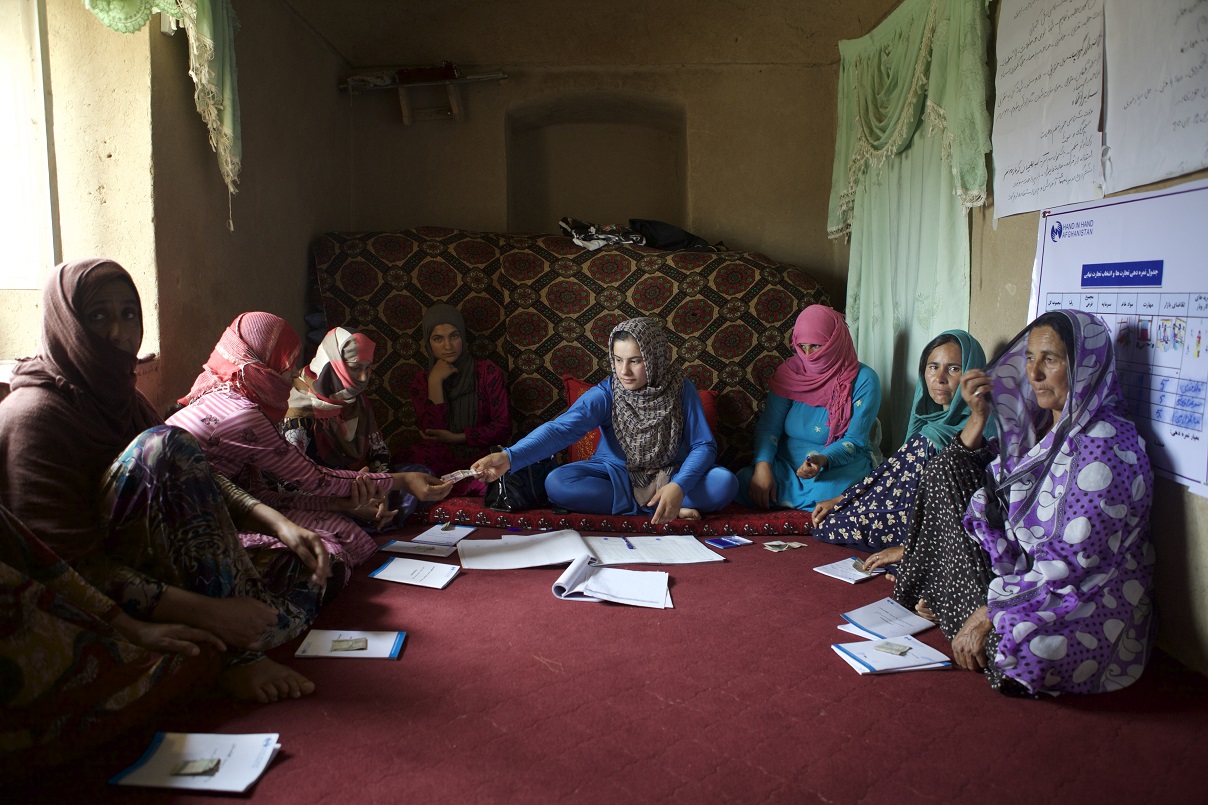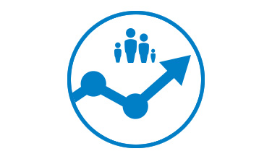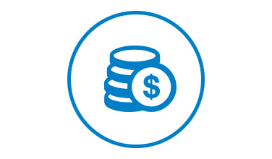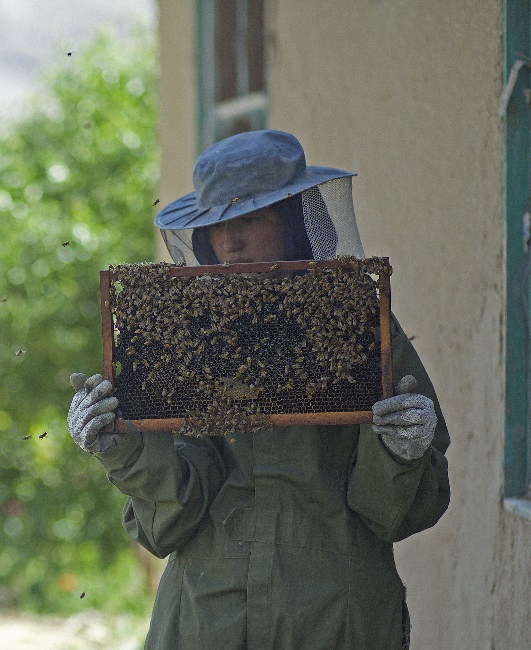Hand in Hand braves ‘insecurity, hazardous weather’ to transform lives: report
01 Oct 2018

A Self-Help Group.
Hand in Hand trainers braved “insecurity, hazardous weather [and the] remoteness of some communities” to transform life for thousands of members, delivering our biggest-ever project in Afghanistan on time and above target, according to an independent review funded by the UK Department for International Development.
Launched in 2015 and joint-funded by Hand in Hand and UK aid from the British people, the three-year, US $3.2 million project aimed to train 9,500 new members and nurture the creation of 13,000 sustainable jobs in Sar-e-Pol province. By the time the project concluded in March, 9,712 members had been trained, creating 13,317 jobs.
More encouraging than any topline data, however, was the story underneath.
By the numbers
 99 percent
99 percent
Proportion of members whose income increased

30 percent
Average rise in household income among all members
Member empowerment
Such high levels of increased mobility, confidence and household decision making among members were no coincidence, noted the report. From the “design and delivery of activities… the selection of beneficiaries… and the training provided, to the monitoring of progress and the sensitisation undertaken by community members”, these outcomes were the programme’s core. “The project was also successful in how it changed attitudes, with male participants remarking that they feel more comfortable in supporting women to participate in the workforce and access markets,” it continued.
“Men are more optimistic about women after Hand in Hand’s project. They used to think we were weak as humans, but after the project their thoughts have been changed positively.” – Project member, Balkhab District
Effectiveness
Hand in Hand “continually used learning to improve project delivery,” said the report. This was particularly true in two instances.
Enterprise Start-Up Kits

Hand in Hand member Frozan checks a beehive.
When Hand in Hand first arrived in Afghanistan 11 years ago, microfinance made sense. But over the course of the project, as the security situation evolved, a change in tack became necessary. For one, travelling to remote areas with cash in hand was putting our trainers – and members – in a potentially vulnerable position, increasing the threat of armed robbery and kidnapping. There was also the possibility loans would be deemed nonreligious by some.
So it was that Hand in Hand introduced Enterprise Start-Up Kits containing all the hardware members need to launch businesses in a number of high-margin sectors. Beekeepers received kits containing beehives, smoking hand pumps and beekeeping suits. Tailors received sewing machines, scissors and thread. By foregoing loans in lieu of assets, and having suppliers deliver the kits, Hand in Hand sidestepped security concerns. And by buying in bulk at a reduced rate, we exemplified “value for money” principles, said the report.
District Associations
Made up of four Self-Help Groups, or roughly 80 members, District Associations are independent, self-sustaining structures that band members together and keep businesses thriving long after Hand in Hand moves on.
Say, for example, that four Self-Help Groups focus mainly on egg production. Acting as a District Association, they can choose a site for incubating and aggregating their eggs. Then, having done so, they can engage with wholesalers and access larger markets.
“These associations are well trained, are registered with the Ministry of Justice as legal entities, have an office at the district level… and have received project assets,” said the report. “Findings revealed during qualitative research with beneficiaries supported [the associations’ sustainability], with participants noting that associations will continue as people have seen their benefit.”
Recommendations
The report also made a number of recommendations for improving future projects. Chief among them was providing more training to members who choose vocational skills – tailoring, say – that require greater amounts of technical skill. It also recommended studying gender in a given area before starting any new project in order to ensure women are optimally supported.
Responding to the recommendations, our team in Afghanistan has committed to adapting future training courses to best meet members’ needs. Detailed assessments will also be undertaken with local and international research partners at the beginning of each project, with the results informing the content of our training.
